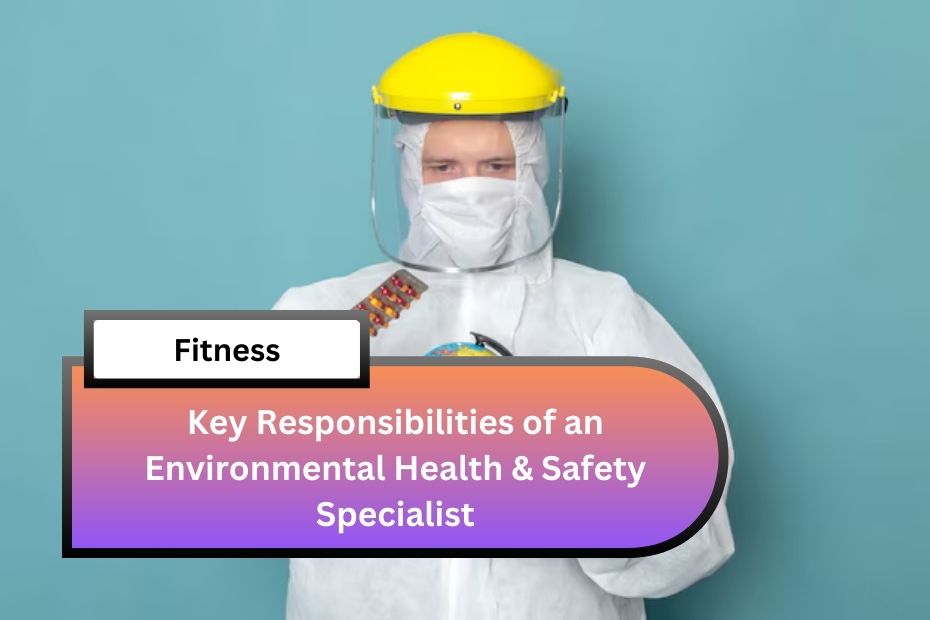Environmental Health & Safety Specialist: In today’s business landscape, ensuring the safety of employees, the public, and the environment is a critical function of any organization. This is where the Environmental Health & Safety (EHS) Specialist plays a pivotal role. These professionals are tasked with developing, implementing, and monitoring programs to ensure compliance with environmental and safety regulations while fostering a culture of workplace safety.
Below, we delve into the key responsibilities of an EHS Specialist, illustrating their essential contributions to organizational sustainability and safety.
Regulatory Compliance and Risk Management
One of the primary responsibilities of an EHS Specialist is ensuring that the organization complies with local, state, and federal regulations. These regulations may pertain to occupational safety, hazardous material handling, waste disposal, or emissions.
Key tasks include:
- Conducting compliance audits to identify and rectify potential violations.
- Staying updated on evolving legislation and updating company policies accordingly.
- Preparing reports for regulatory agencies and facilitating inspections.
Proactive risk management is also integral. Specialists perform risk assessments to identify potential hazards and implement controls to minimize risks.
Developing and Enforcing EHS Policies
EHS Specialists are responsible for creating and maintaining comprehensive policies that govern workplace health, safety, and environmental stewardship. These policies must be tailored to the organization’s specific operations while aligning with industry standards.
Responsibilities include:
- Drafting safety procedures, such as emergency response plans and incident reporting protocols.
- Establishing guidelines for environmentally friendly practices, such as energy conservation or waste reduction.
- Ensuring that policies are clearly communicated and accessible to all employees.
Workplace Safety Training and Education
Training is a cornerstone of an effective EHS program. EHS Specialists organize and conduct training sessions to educate employees on safety practices, emergency procedures, and environmental awareness.
Training programs often cover:
- The proper use of personal protective equipment (PPE).
- Safe handling and storage of hazardous materials.
- Procedures for evacuation and first aid.
Regular training reinforces a safety-conscious mindset, reducing the likelihood of accidents and fostering a culture of accountability.
Incident Investigation and Reporting
In the event of an incident, such as a workplace injury or environmental spill, the EHS Specialist plays a crucial role in investigating its cause. They analyze the incident to determine contributing factors and recommend measures to prevent recurrence.
Key activities include:
- Collecting evidence, interviewing witnesses, and preparing detailed incident reports.
- Collaborating with management to implement corrective actions.
- Communicating findings to employees to enhance overall awareness.
Environmental Sustainability Initiatives
With the growing emphasis on sustainability, EHS Specialists often lead efforts to minimize an organization’s environmental footprint. They design and implement programs focused on reducing waste, conserving energy, and managing resources efficiently.
Specific initiatives might include:
- Overseeing recycling programs and waste management systems.
- Conducting environmental impact assessments for new projects.
- Promoting the use of eco-friendly materials and renewable energy sources.
By championing sustainability, EHS Specialists not only ensure compliance but also enhance the organization’s reputation as an environmentally responsible entity.
Emergency Preparedness and Response
Preparing for potential emergencies is a vital component of the EHS Specialist’s role. This involves creating and regularly updating emergency response plans that address scenarios such as natural disasters, chemical spills, or fires.
EHS Specialists also coordinate drills to test these plans and identify areas for improvement. They may collaborate with external agencies, such as fire departments or environmental regulators, to ensure readiness.
Conclusion
Environmental Health & Safety Specialists are indispensable in creating safe workplaces and promoting environmental responsibility. Their multifaceted role requires expertise in compliance, risk management, training, and sustainability. By fulfilling these responsibilities, EHS Specialists help organizations protect their most valuable assets: their people, their environment, and their reputation.
For companies striving for operational excellence, investing in a robust EHS program is not just a legal necessity but a strategic advantage.
FAQ’s
1. What is the primary role of an EHS Specialist?
The primary role of an EHS Specialist is to ensure workplace safety and environmental compliance by developing policies, conducting training, managing risks, and responding to incidents.
2. What qualifications are required to become an EHS Specialist?
Most EHS Specialists hold a degree in Environmental Science, Occupational Health, Safety Management, or a related field. Certifications like CSP (Certified Safety Professional) or OSHA training can enhance credentials.
3. How do EHS Specialists ensure regulatory compliance?
EHS Specialists monitor changes in laws, conduct audits, prepare reports, and implement safety measures to ensure the organization meets local, state, and federal regulations.

